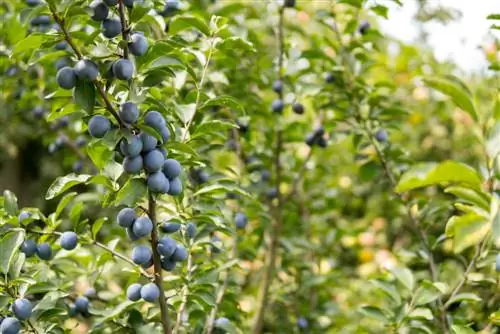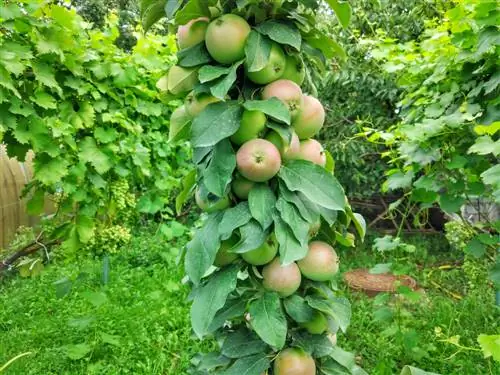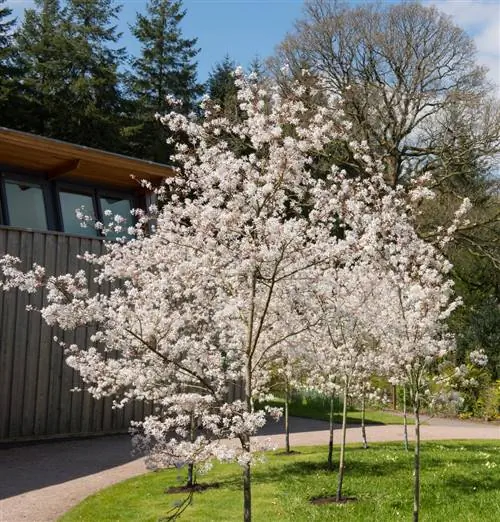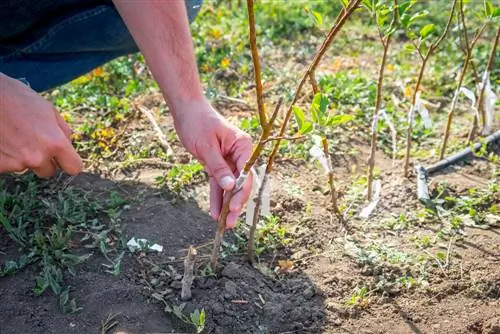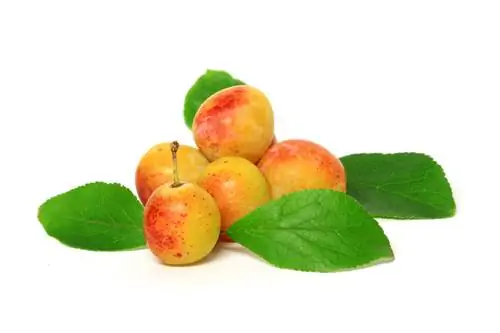- Author admin leonars@hobbygardeners.com.
- Public 2023-12-16 16:46.
- Last modified 2025-01-23 11:21.
Plums are not only a real treat fresh from the tree, they are also very suitable as a fruity, refreshing baking ingredient. With plum trees that grow like columns, even the owners of smaller gardens and terraces don't have to miss out on enjoying their own home-grown fruit.
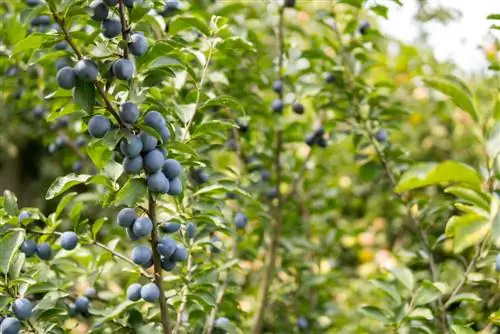
Which plum varieties are there?
Popular plum varieties are 'Top Col', 'Anja', 'Fruca', 'Pruntop', 'Top', 'Imperial', 'Maja', 'Ruth', 'Hermann' and 'Black Amber' '. They are particularly suitable for small gardens or fruit trellises and prefer sunny locations with humus-rich soil.
Plum plums can grow surprisingly large
While specialist retailers sell a wide variety of fruit with columnar growth under the generic term columnar fruit, the various fruit trees differ quite significantly in their growth characteristics and care requirements. Although appropriately bred columnar peaches or apples can be cultivated as “dwarf trees” with the necessary pruning, columnar plums can reach heights of more than 300 cm. The columnar forms among the plums not only form a narrow trunk, but can also be around 100 cm wide. You can of course regularly correct the growth habit through appropriate pruning measures, but this sometimes reduces the possible yield. It is advisable not to fall for the photo montages of some tree nurseries with their pictures of columnar mini plum trees in pots with an incredibly dense set of fruits. In general, columnar plums are better suited for fruit espaliers and sunny locations in the garden than for container cultivation on a windy balcony.
Choosing the right plum variety
Numerous plum varieties with columnar growth are now available from specialist businesses; particularly popular varieties are:
- Prunus domestica ‘Top Col’
- Prunus domestica ‘Anja’
- Prunus domestica ‘Fruca’
- Prunus domestica ‘Pruntop’
- Prunus domestica ‘Top’
- Prunus domestica ‘Imperial’
- Prunus domestica ‘Maja’
- Prunus domestica ‘Ruth’
- Prunus domestica ‘Hermann’
- Prunus domestica ‘Black Amber’
Plum trees prefer a location that is as sunny as possible with permeable, humus-rich soil. When choosing a variety for your own garden, it depends not least on your own expectations of the fruit yield: the different varieties differ in fruit size and color, as well as in the exact ripening time. A distinction is made between early, medium early and late varieties.
The imperial plum plum
The columnar-growing plum variety Prunus domestica 'Imperial' is characterized by relatively fast growth and easily stone-dissolving fruits with medium-firm flesh. If the flowers of this columnar plum, which grows around 250 to 300 cm high, are not affected by late frosts, the fruits of this self-fertile variety reach their ripeness for consumption in August and September.
Tip
Even with fruit varieties that are actually self-fruitful, it can have a positive effect on the yield if trees of the same or a similar type of fruit are planted in the immediate vicinity.

